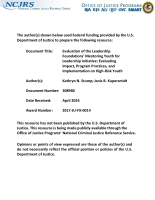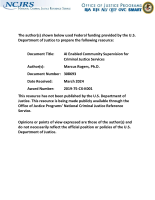PAROLE VIOLATION PATTERNS AND COMMITMENT OFFENSE
Journal
Journal of Research in Crime and Delinquency
Date Published
1972
Agencies
NIJ-Sponsored
Publication Type
Research (Applied/Empirical)




